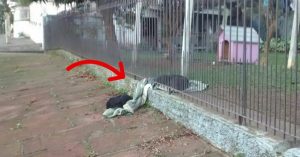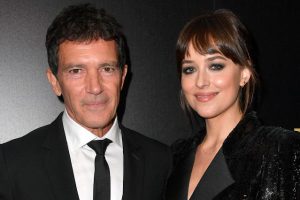During a “hurriedly arranged” interview with a BBC reporter on Tuesday, Twitter CEO Elon Musk criticized the reporter for failing to cite concrete instances of hate speech that was flourishing on the social media network.
BBC reporter James Clayton opted to confront the Tesla founder with claims that he doesn’t have enough people to regulate hate speech on Twitter as they discussed impending layoffs and the “painful” journey Musk, 51, has gone through since buying Twitter last year.
“What hate speech are you talking about?” Musk asked. “I mean, you use Twitter. Do you see an increase in hate speech? Just a personal anecdote? I don’t.”
When Clayton responded that he’d personally seen more hate speech on Twitter, Musk challenged him to give just one example, but the reporter couldn’t think of one.
“Honestly, I… I don’t actually use that feed anymore because I just don’t like it that much,” Clayton said of Twitter’s “For You” feature. And indeed, many people are quite similar. I only look at my followers.”
Musk replied: “I’m asking for an example and you can’t give one. Then I say, sir, you don’t know what you’re talking about.”
“You can’t give me a single example of hateful content, not even a tweet. And yet you claimed hateful content was high. That’s wrong, you just lied.”
BBC reporter James Clayton has confronted Elon Musk with allegations that he doesn’t have enough staff to monitor hate speech on Twitter. BBC
Clayton continued to point the finger at Musk, with the journalist claiming he said others had reported seeing a surge in hate speech, not that he himself had seen it on his Twitter feed.
Musk snapped back, saying, “You literally said you’ve experienced more hateful content and then couldn’t come up with a single example. That is absurd!”
During the interview, Clayton suggested that the rise in hate speech is “attributed to content that would evoke a reaction, something that’s slightly racist, slightly sexist.”
“What hate speech are you talking about… Seeing an uptick in hate speech? Just a personal anecdote? I don’t,” Musk replied.BBC
The Chief Twit also questioned that characterization, asking: “So you think if something is mildly sexist it should be banned? Is that what you say?”
Clayton replied, “No, I’m not saying anything.”
The BBC did not immediately respond to the Post’s request for comment.
Twitter is under increasing pressure to take action against hate speech and illegal content on the platform. BBC
The allegedly ‘unexpected’ interview with the UK outlet comes as Twitter faces increasing pressure abroad to crack down on hate speech and illegal content on the platform.
Earlier this year, the European Union warned Twitter that it needs to hire more content moderation staff to comply with its Digital Services Act.
And last week, the Federal Office of Justice (BfJ) threatened the company with a $55 million fine for failing to adequately handle illegal content such as hate speech, personal threats, defamation and anti-Semitism.
“The BfJ has sufficient evidence for this [Twitter] violated the legal obligation to process complaints about illegal content and this is a system-related failure in the provider’s complaint management, which is subject to a fine,” according to the agency.
Twitter is also facing a lawsuit from HateAid and the human rights group the European Union of Jewish Students, who allege the company failed to remove six posts that downplayed or denied the Holocaust.





